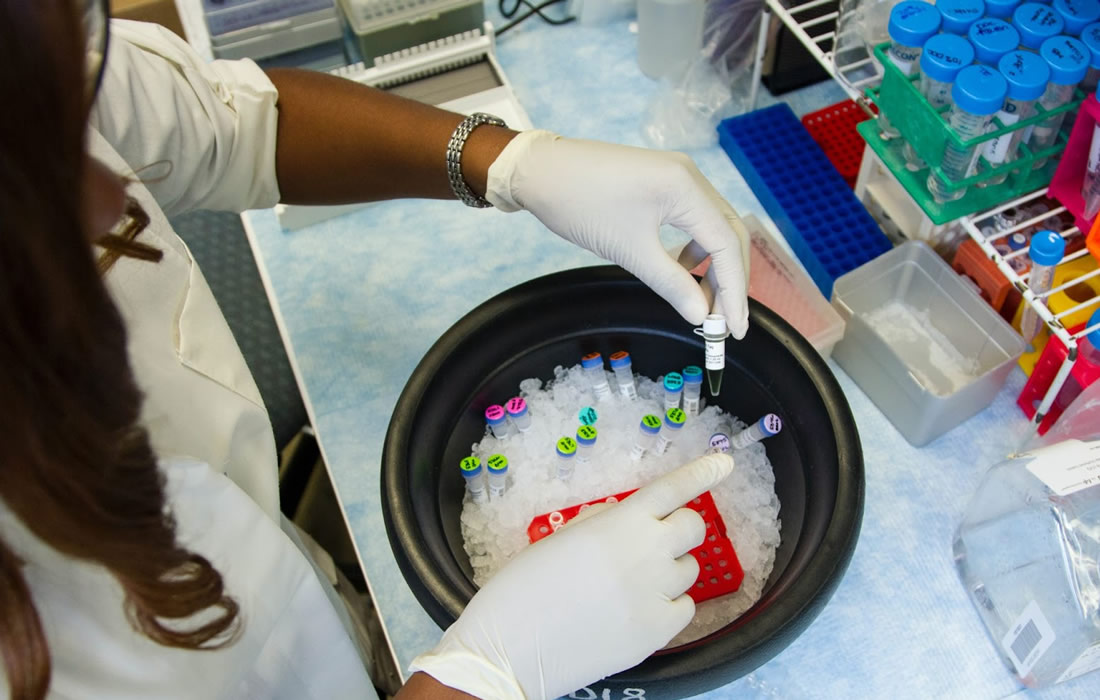Regenerative Medicine News and General Information
Potential New Medical Therapy for Lyme Disease
A medical therapy that inhibits the growth of cancer cells may one day be effective at treating Lyme disease, according to new research.
Lyme disease is the most common vector-borne disease in the U.S., spread by infected deer ticks. The potentially debilitating illness, which is diagnosed in about 476,000 people each year in the U.S., doesn’t always respond to antibiotics. “There are people who have cases of Lyme disease that go on and on,” Rich says. “So there’s always interest in finding new therapies or new ways to inhibit the growth of the bacterium. And based on what we’re seeing in the lab, this may be one of those ways.”
Tumor cells and Borrelia burgdorferi, the corkscrew-shaped bacterium that causes Lyme disease, share an unusual feature about the way they grow, Ph.D. candidate Patrick Pearson, noted and pondered. “It turns out that cancer cells and Borrelia both rely solely on glycolysis for their metabolism,” Rich explains.
Glycolysis, in turn, is dependent on one molecule called lactate dehydrogenase, or LDH. Pearson wondered whether LDH inhibitors, which are used as drug therapies to target certain cancers, might also be an effective strategy against Lyme disease.
“It was a very clever idea,” Rich says. “In principle, we thought these LDH inhibitors should work well to inhibit the growth of Lyme disease bacteria.”
And in fact, in in vitro experiments, they did. “…a range of commercially available LDH inhibitors with various mechanisms of action and origins were tested on Borrelia in Culture,” the paper states. “Of these inhibitors, gossypol, AT-101, and oxamate substantially impacted B. burgdorferigrowth in vitro and represent promising candidates against Borrelia infections in vivo.”
Rich says the research will continue at NEWVEC, “These experiments were done outside of hosts. Now we need to carry this out in mouse models and, eventually, in people,” Rich says.
The researchers note that this drug therapy may also be effective against another tick-borne disease, babesiosis, a malaria-like infection. “This has the potential to kill two birds with one stone,” Rich says. “And that makes this discovery even more tantalizing.”
Sources:
Adam Lynch, Patrick Pearson, Sergey N. Savinov, Andrew Y. Li, Stephen M. Rich. Lactate Dehydrogenase Inhibitors Suppress Borrelia burgdorferi Growth In Vitro. Pathogens, 2023; 12 (7): 962 DOI: 10.3390/pathogens12070962
University of Massachusetts Amherst. “Research points to potential new medical therapy for Lyme disease: Medication used to halt cancer may help fight tick-borne illness.” ScienceDaily. ScienceDaily, 28 July 2023. <www.sciencedaily.com/releases/2023/07/230728113409.htm>.
Images from:
Photo by National Cancer Institute
https://unsplash.com/photos/1fvqUP-xaYQ

